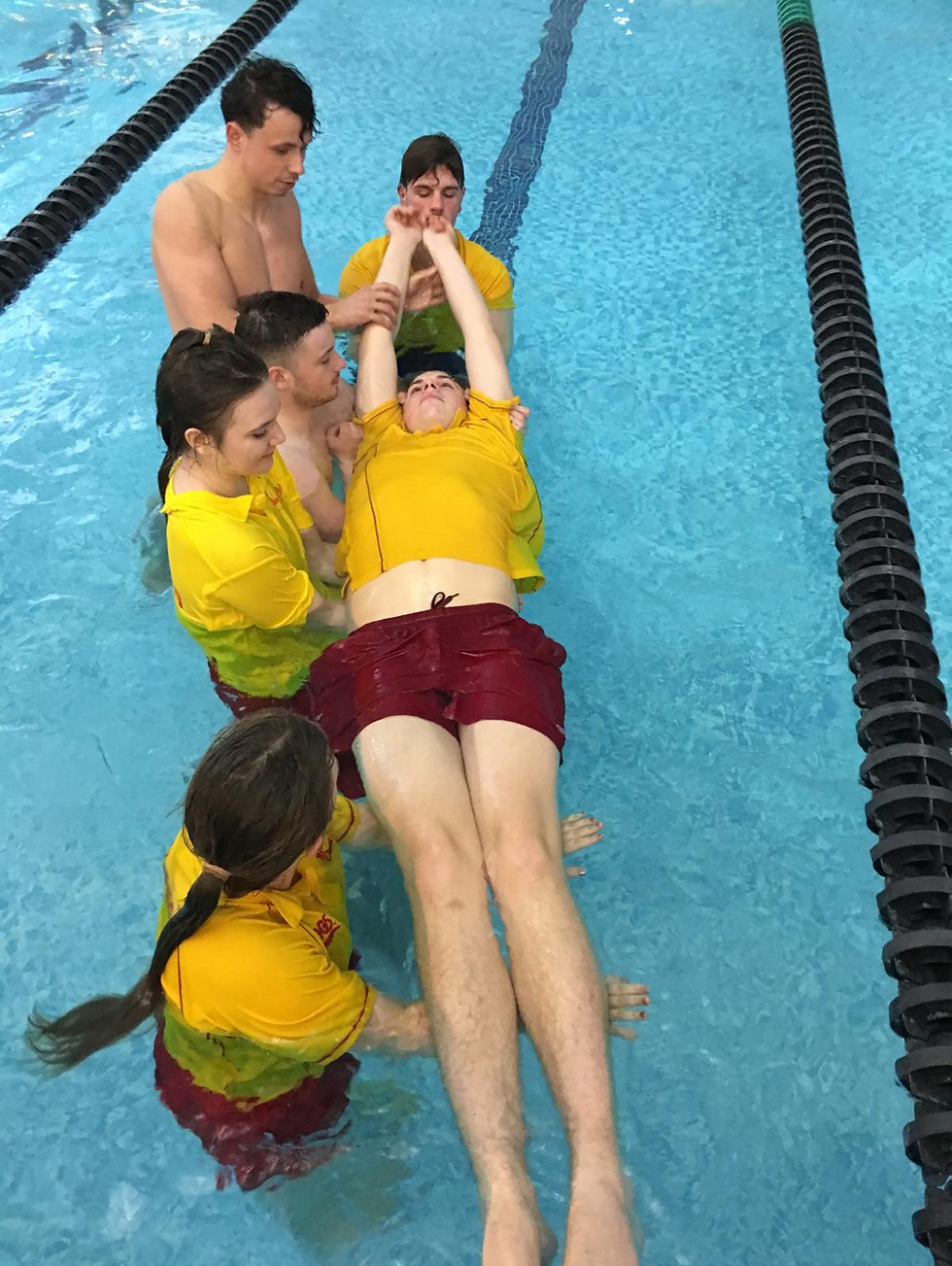
Frequently Asked Questions
FREQUENTLY ASKED QUESTIONS
Everything you need to know about the NPLQ and becoming a qualified Lifeguard
Download our 2025 Course Prospectus HERE
The National Pool Lifeguard Qualification (NPLQ) is the most widely recognised lifeguard qualification available in the UK and can only be delivered through an RLSS (Royal Life Saving Society) UK-approved provider such as Cardiff Lifeguard.
It is a regulated Level 3 qualification, called the Level 3 Award in Pool Lifeguarding.
The latest qualification is called the NPLQ Generation 10.
The qualification will allow you to provide lifeguard cover in a pool environment during programmed and non-programmed activities.
The course requirements for taking the NPLQ qualification are as follows:
-
You must be 16 years old or older
-
Swim 100 metres continuously on your front and back in deep water
-
Must attend the whole course
-
Jump/dive into deep water
-
Swim 50 metres in less than 60 seconds
-
In deep water, tread water for at least 30 seconds
-
Surface dive to the floor of the pool (2 metres)
-
Climb out unaided
Please ensure that you are able to complete all of the above before attending an NPLQ course
-
We run several NPLQ training courses at the Cardiff Medical Centre Sports and Social Club swimming pool, situated on the UHW (Heath Hospital) site in Cardiff, throughout the year.
The course is typically run consecutively from a Monday to a Friday, between 9:00 am and 5:30 pm. These times and dates can differ from course to course, so please check your registration email for more information.
Our courses are fully regulated and we’re an approved provider of the Royal Life Saving Society UK for teaching the NPLQ.
The NPLQ Lifeguard course will involve a minimum of 36 hours of training and 100% attendance. The NPLQ covers all elements of Pool Rescue Techniques, Lifeguarding, Theory, First Aid and CPR.
The course also includes swimming to set times, lifting casualties and diving into the deepest part of the swimming pool. Upon completion of the training, the NPLQ is assessed by an independent assessor.
The assessment will include multiple-choice question papers, practical demonstrations of water rescue skills, CPR and First Aid.
The National Pool Lifeguard Qualification (NPLQ) offers numerous benefits for individuals pursuing a career in lifeguarding and the leisure industry. Here are some key advantages of taking the NPLQ with Cardiff Lifeguard:
Career Foundation and Progression
Starting Point for Careers: The NPLQ is widely recognized as a foundational qualification in the leisure industry, often serving as the first step towards various roles, including pool lifeguard and leisure centre manager.
Career Advancement: Many individuals who start as lifeguards progress to higher positions within the leisure sector, such as swimming instructors or facility managers.
Skill Development
Lifesaving Skills: The qualification equips candidates with essential lifesaving techniques, including CPR, first aid, and emergency response skills. These skills are crucial for ensuring the safety of pool users.
Transferable Skills: Participants develop transferable skills such as teamwork, communication, leadership, and risk management, which are valuable in many job settings beyond lifeguarding.
Personal Benefits
Fitness and Health: The training promotes physical fitness, as candidates must maintain good health to perform their duties effectively. Lifeguards often enjoy an active lifestyle through their work.
Confidence Building: Working in a responsible role that involves safeguarding lives can significantly enhance personal confidence and decision-making abilities.
Employment Opportunities
Job Availability: Completing the NPLQ opens up numerous employment opportunities in various settings, including public swimming pools, leisure centres, and private clubs. It is often a requirement for lifeguard positions.
Flexible Working Hours: Lifeguarding jobs typically offer flexible hours, making it easier for individuals to balance work with other commitments such as studies or part-time jobs.
Lifelong Skills
Lifesaving Knowledge: The skills learned during the NPLQ training are not only applicable in professional settings but also provide lifelong knowledge that can be beneficial in everyday situations.
Community Impact: Lifeguards play a vital role in ensuring public safety at swimming facilities, contributing positively to community well-being by preventing accidents and providing immediate assistance when needed.
At Cardiff Lifeguard, we believe that obtaining an NPLQ not only prepares individuals for a rewarding career in lifeguarding but also enhances personal growth and community safety through essential lifesaving skills.
From 2024, the NPLQ Gen10 will be worth 8 UCAS tariff points. This means that anyone who is applying to university can include their current NPLQ Gen 10 within their application and gain 8 UCAS tariff points.
For some applicants, this can mean the difference between being accepted into certain universities, so it is a valuable, additional qualification.
To renew your National Pool Lifeguard Qualification (NPLQ), you must follow these key steps:
Renewal Requirements:
-
Timing: Renew within the period of validity of your existing qualification as stated on your certificate.
-
Ongoing Training: Complete a minimum of 20 hours of Continued Professional Development (CPD) within the last two years.
CPD Training Breakdown:
The 20 hours must include training in:
-
In-water swimming pool rescue skills (at least 4 hours)
-
CPR (at least 4 hours)
-
First Aid (at least 4 hours)
-
Lifeguard theory (at least 4 hours)
Renewal Methods
You can achieve the CPD through:
-
Attendance at lifeguard ongoing training and competency assessment
-
Alternative training (face-to-face or online) related to lifeguarding skills
Assessment
-
The renewal typically involves a three-to-four-hour renewal assessment
-
You must pass the assessment to maintain your qualification
-
The renewed NPLQ will be valid for another 2 years
Important Note: Your current qualification must still be valid when you attempt the renewal assessment, and you must have completed the required training hours. Please contact us for more information about the renewal of your NPLQ.
-
Upon qualifying, the NPLQ certificate is valid for two years from the date of successful completion.
You must be 16 years-of-age or older at the time of taking the NPLQ.
.png)